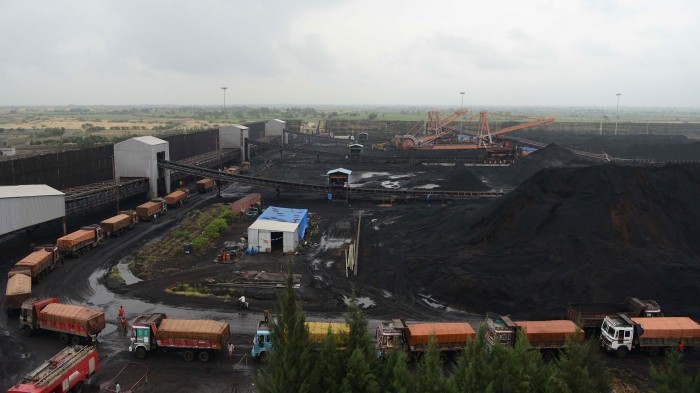Coal Power Has Taken a Tumble, But Is It the Beginning of the End?

Coal power is so 2015.
That’s assertion made by a new analysis carried out by Greenpeace, the Sierra Club, and the research organization CoalSwarm, which reveals that the number of new coal power plants being built around the world fell by 62 percent last year. It also shows that there’s been a 48 percent decrease in pre-construction planning activity for new plants, too.
Much of the decline appears to be driven by India and China. The two nations have built new coal plants at a ferocious rate in the past, but they are now putting the brakes on new projects. China has halted more than 100 coal-fired power projects and laid off coal workers, while Indian government documents suggested that the country didn’t need any new coal plants beyond those already being constructed.
The report also points out that coal power plants are being phased out faster than ever, with 64 gigawatts of capacity taken offline in the past two years—mainly in Europe and the U.S.
On the surface, this appears to be good news. Coal is the worst of all the fossil fuels in terms of carbon emissions per unit of energy produced, and a large contributing factor to deadly air pollution in many parts of the world. Reducing our reliance on it would ease those environmental concerns and help put the planet on track to meet the targets of the Paris climate agreement.
Still, the industry is a long way from dead. While planning for new plants may be falling, 570 gigawatts of capacity are still slated for construction in the coming years. That’s down from 1,090 gigawatts in January 2016, but it still equates to hundreds of new plants.
Currently, it’s unclear what the U.S. will contribute to the forecasts. President Trump has been vocal about his desire to resuscitate America's coal industry, but as our own James Temple has explained, for as long as natural gas remains cheap and plentiful, it’s an empty promise.
The same can’t be said elsewhere. As Benjamin Sporton, chief executive of the World Coal Association, told the Guardian, in many parts of Asia “excluding coal from the energy mix is not an option—it is essential for economic growth and critical in securing energy access.”
He’s not necessarily correct about the economic growth part, but it’s certainly true that without serious taxes placed on coal it remains an attractive proposition for many nations.
(Read more: Boom and Bust 2017, The Guardian, “Will We Ever Stop Using Fossil Fuels?,” “Trump’s Empty Promise to Coal Country,” “India Now Has the World’s Worst Air Pollution”)
Keep Reading
Most Popular
Large language models can do jaw-dropping things. But nobody knows exactly why.
And that's a problem. Figuring it out is one of the biggest scientific puzzles of our time and a crucial step towards controlling more powerful future models.
The problem with plug-in hybrids? Their drivers.
Plug-in hybrids are often sold as a transition to EVs, but new data from Europe shows we’re still underestimating the emissions they produce.
Google DeepMind’s new generative model makes Super Mario–like games from scratch
Genie learns how to control games by watching hours and hours of video. It could help train next-gen robots too.
How scientists traced a mysterious covid case back to six toilets
When wastewater surveillance turns into a hunt for a single infected individual, the ethics get tricky.
Stay connected
Get the latest updates from
MIT Technology Review
Discover special offers, top stories, upcoming events, and more.